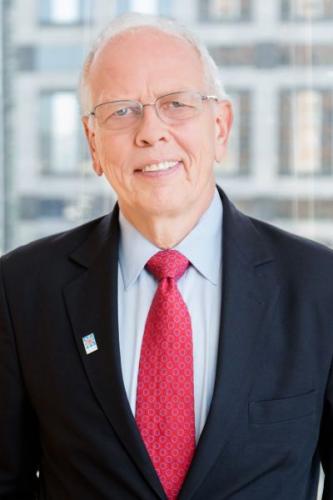Are We Asking the Wrong Question About Medi-Cal?
Almost 75 million people in the United States depend on Medicaid for their health care. That means almost one in five people in this country are low-income enough to qualify for the health coverage program, funded jointly by the federal and state governments.
Those are distressing numbers when you consider this is one of the wealthiest nations in the world.
Who are these 75 million? You might be surprised. While half are children and a quarter are adults with disabilities or the elderly, the rest are adults with no disabilities.
And the majority in this last group are working—they are the working poor. They are not lazy people taking advantage of the government programs. They simply don’t work at jobs that provide insurance or don’t earn enough to afford insurance.
They are people making under $16,643 a year, or a family of four bringing in $33,948 or less. It’s hard to comprehend how they can even pay for the basic necessities—housing, food, clothing, transportation—especially here in California.
Health care advocates are always working on ways to make sure Medicaid is around to help people living in poverty. This is a good thing, but I also think it’s important to ask: Why do so many people require Medicaid? Why are so many people living and working in poverty? Why are we not working on more ways to lift people out of destitution?
This is a morally troubling situation and one that requires attention far beyond the health care industry.
However, a health plan like the one I lead, L.A. Care Health Plan, can play a role in creating a pathway out of poverty. Because of the regular contact we have with members on Medi-Cal, the name for Medicaid in California, we have the ability to identify the social determinants that have become barriers to rising out of poverty. As we help these people manage their health, we can address those barriers, and this may help lift people financially, as we potentially see a reduction in the need for certain health services.
Food insecurity is one area that L.A. Care has addressed through more than $1 million in grants over the past two years to community organizations that help low-income people either through a food pantry or by enrolling them in CalFresh, also known as the Supplemental Nutrition Assistance Program. People who qualify receive monthly electronic benefits that can be used to buy most foods at many markets.
Proper nutrition is an important component of good health. It’s hard to think about improving your lot in life if you are worried about where to get your next meal. Medicaid health plans can help identify members who are nutritionally vulnerable, and connect them with the right services, but it is much more effective through partnerships.
Housing is possibly the biggest social determinant requiring attention, especially in this region, which is facing an affordable housing crisis. At last count, there were 58,000 homeless people in L.A. County, the territory served by L.A. Care.
Studies have shown that people who are homeless are much more likely to suffer from acute or chronic illnesses compared to those who are housed. Treatment of these health problems is difficult even when services are available. Where do you send that prescription refill, or the notification of an upcoming medical appointment?
More housing is the answer, and that’s why L.A. Care has committed $20 million over five years to Brilliant Corners, a housing agency working with Los Angeles County’s Housing for Health program. A Rand Corporation study of Housing for Health late last year found the program decreased emergency room visits and hospital stays, and lowered health care costs by 60 percent for those in the program.
We can help feed and house members, but it is also critical to educate them. L.A. Care has opened five Family Resource Centers across L.A. County, with plans for a total of 13. The centers provide a wide variety of classes for both members and the general public. Visitors can learn CPR or First Aid, they can get nutritional or diabetes counseling, or they can take various fitness classes. We are providing a fun and engaging location for people to learn and improve their health.
L.A. Care and other health plans can address the social determinants of health in ways that just might help, over time, to lower the number of people dependent on Medicaid.
About John Baackes
John Baackes is the CEO of L.A. Care Health Plan, the largest public health plan in the country, serving more than 2 million members.

